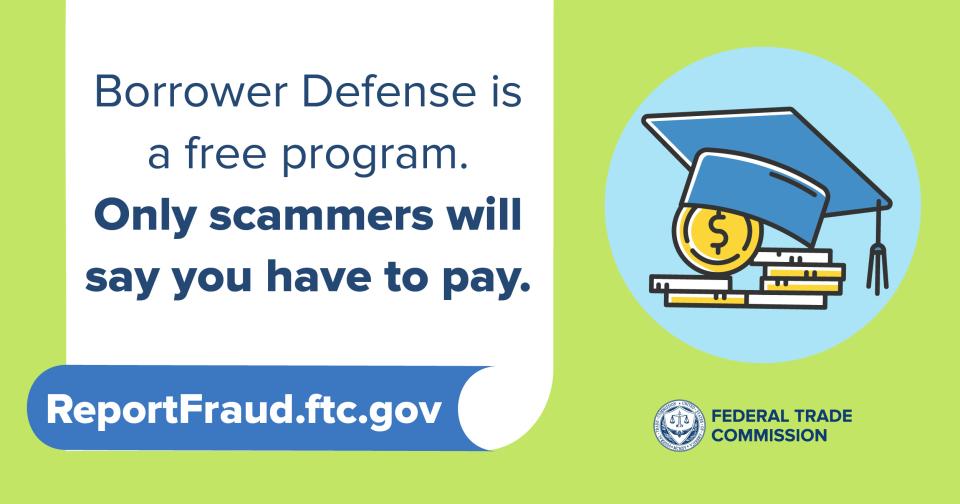If you have student loans, you probably already know about the US Department of Education’s (ED’s) borrower defense loan forgiveness program. But did you know about a lawsuit and proposed settlement in the case of Sweet v. Cardona that could mean thousands more people with borrower defense claims will be able to get their eligible federal loans forgiven? Read on to learn more and see how to avoid scammers looking to cash in.
The details are still coming together, but here’s what to know right now:
- If your borrower defense application was pending as of June 22, 2022, there’s nothing else you need to do. Students who attended certain schools will have their loans discharged, along with other benefits. Otherwise, decisions will be made on a rolling basis depending on when you submitted your application. Check ED’s website for more details.
- If you haven’t applied for borrower defense (but think you should) – do it now. There are benefits to getting your borrower defense application in before the final approval of the settlement (which hasn’t been announced yet — but should be soon). Check out what types of claims may qualify for borrower defense.
Some of the names on the list of schools included in the Sweet settlement may look familiar — and they should. The FTC has also sued the University of Phoenix, DeVry, and the operators of American InterContinental University and Colorado Technical University for their allegedly deceptive practices. Students who took out loans to attend those schools got more than $300 million in payments and debt cancellation through these FTC actions. If you got a check from one of these settlements: You’re still eligible to get your federal loans forgiven through the borrower defense program, so file your application.
This settlement is not a scam. It’s real. And it’s free to apply. Remember:
- Don’t pay anybody for anything related to your borrower defense claim. Nobody can move you up in line, give you special access, or guarantee a successful application. Not for free, and certainly not for money. And only scammers will ask. And if you spot a scam, tell the FTC: ReportFraud.ftc.gov.


I get calls about student loans nearly every day. I am 76 years old, never had a student loan & never signed with anyone else to get one. I have told them numerous times I don't have a student loan. They say they will take my name off; but they call right back the next day. I am sure it is a scam.
I was in rolled at ctu towards the end of the semester after they got all there money from my student loans I got sick and missed a few days and they kicked me out I had all As in every class but they still owed me money from my loans that I still never got